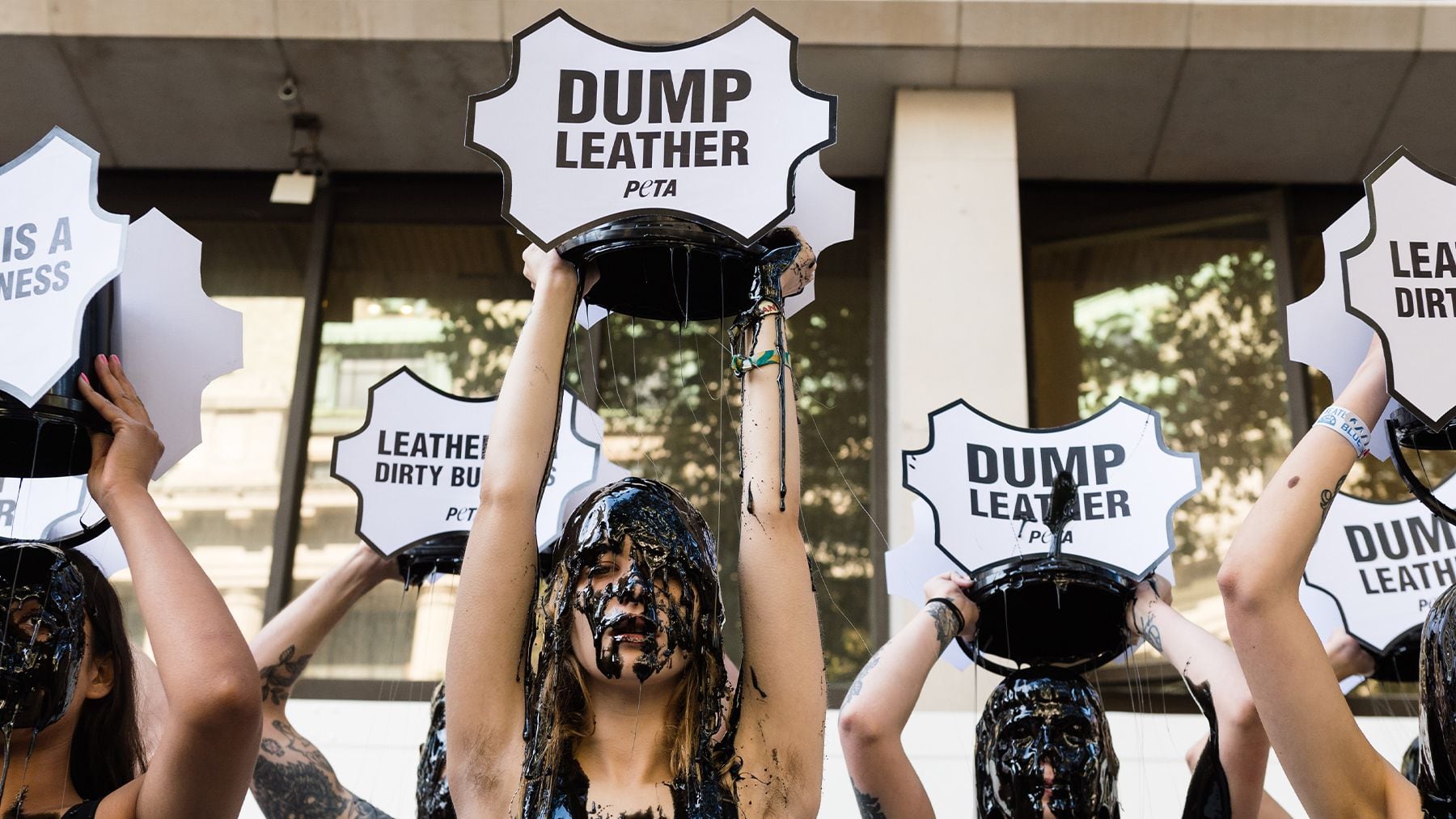
When Ingrid Newkirk co-founded People for the Ethical Treatment of Animals in 1980, fur was a status symbol. “Everyone aspired to have a fur,” Newkirk recalled. “But that’s all gone now.”
Peta has played a significant role in that shift, blending aggressive protest tactics — including throwing red paint — with media campaigns and corporate engagement to drag the fashion industry away from its use of fur.
Calvin Klein was one of the earliest major fashion brands to go fur-free after Peta stormed its New York office in 1994. The same year, the group ran its famous ads featuring naked supermodels claiming they’d rather go naked than wear fur. Social media and a broader cultural conversation around ethical consumption helped all but complete the job: Gucci declared fur passé in 2017. Parent company Kering went fully fur-free in 2021, joining a roster of luxury brands from Chanel to Versace.
Fur still pops up on runways now and then, but it’s now illegal to sell in California and Israel. Covid outbreaks at European mink farms diminished the industry’s status further.
Now, Peta’s goal is to make other animal-derived materials like wool, leather and down as unacceptable as fur, pointing to practices like live plucking and calling out the conditions in which sheep and cattle are farmed, transported and slaughtered.
It has its work cut out for it. While fur was a negligible part of most companies’ business, leather goods are the industry’s sales engine, and many vegan alternatives have their own drawbacks. For the vast majority of brands, doing away with leather or wool is a nonstarter; several luxury companies that committed to go fur-free have resisted activist calls to do the same, even for exotic skins, let alone cow leather.
Peta is undeterred — many of the same arguments were made about fur four decades ago, after all.
“When we look at where the largest number of animals suffer the most, food is top of the list, but next is clothing,” said Newkirk. “We’re here to change the industry.”
A Shifting Market
More companies are looking at alternative materials, keen to cater to a growing base of consumers that want to shop for climate, animal and people-friendly products.
Danish brand Ganni has pledged to stop using virgin leather in order to meet its climate targets, while companies including Kering, Prada and leather-goods powerhouse Hermès are experimenting with materials biofabricated in labs and grown from mycelium, the root structure of fungi.
But many of those new materials are in the relatively early stages of development. They’re often expensive, produced in small quantities and unable to match the quality of leather unless they contain hefty quantities of plastic. Vegan alternatives for wool are even harder to find.
For many consumers, wool and leather are everyday materials with less complicated moral baggage than fur or exotic skins because, unlike mink or crocodiles, cows and sheep aren’t raised purely for their pelts and skins.
But Peta argues the industry is just as cruel. While brands often point to responsible farming standards to claim the materials they use were raised ethically, the animal rights group says these certifications don’t count for much. Its campaigns include harrowing and shocking imagery and stories of mistreatment.
“We’re working hard to wake people up,” said Newkirk. “Fur is obvious now, leather increasingly so… wool is the hardest.”
Pressure Campaigns
Nowadays, much of Peta’s work happens behind the scenes in the form of corporate engagement designed to persuade brands to change their policies and practices. It even offers a Peta-approved vegan logo companies can use to promote their products. But where brands are seen to move too slowly or don’t respond to the group’s diplomacy, it can still prove fearsome.
Last year it plastered the streets of New York with posters calling on large luxury brands to drop exotic skins. It’s staged protests outside Gucci and Louis Vuitton stores and brought the issue in front of shareholders at Kering, LVMH and Hermès annual meetings.
Luxury outerwear brand Canada Goose said it would drop fur in 2021, earning a reprieve from a campaign of regular demonstrations. But they may resume if the company doesn’t make a similar commitment to stop using feathers, said Newkirk.
“We can make sure nobody wants a down jacket for winter,” said Newkirk, pointing to Peta’s substantial following on social media. “We can put together some pretty zingy ads.”
Canada Goose said its down is certified under the Responsible Down Standard and it introduced a down alternative jacket in November, a move it said was praised by Peta.
The animal rights group’s current fashion campaigns cover companies including H&M Group, Levi’s, Ralph Lauren and Allbirds, with additional focus on luxury groups’ ongoing use of exotic skins.
It’s also looking at legal routes to challenge big brands’ claims that animal materials are responsibly sourced. Peta argues these amount to consumer fraud based on its investigations into supply chains. It’s currently identifying a target for its first case, which is likely to either focus on wool or exotic skins, Newkirk said.
“Some companies feel [that] maybe if we do fur, we can hold the bar there,” said Newkirk. “We’re still activists, and the bottom line is: we’re here to change the Industry, and we will change it.”
For more BoF sustainability coverage, sign up now for our Weekly Sustainability Briefing by Sarah Kent.
Stay connected with us on social media platform for instant update click here to join our Twitter, & Facebook
We are now on Telegram. Click here to join our channel (@TechiUpdate) and stay updated with the latest Technology headlines.
For all the latest Fashion News Click Here
